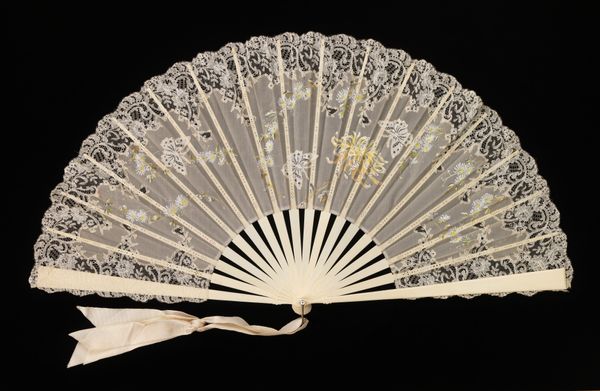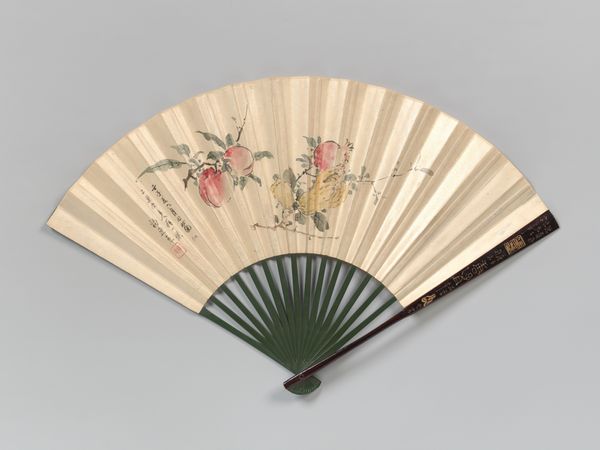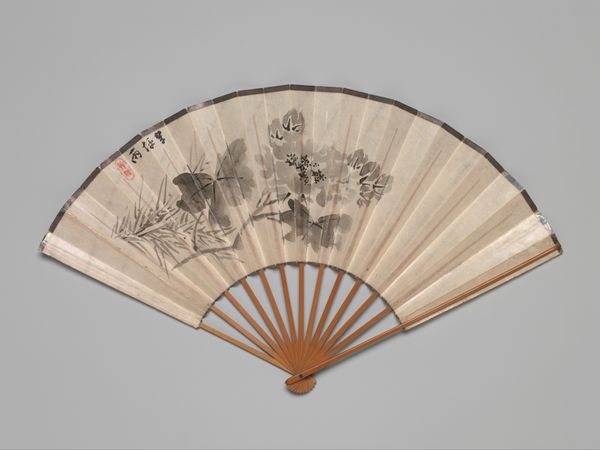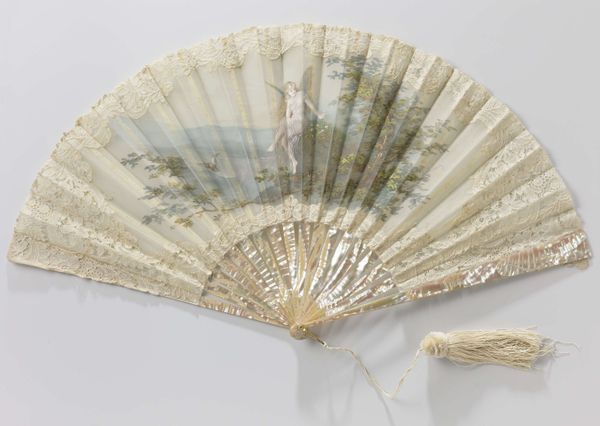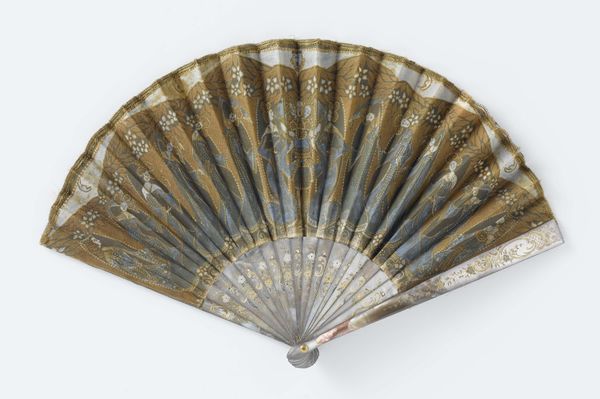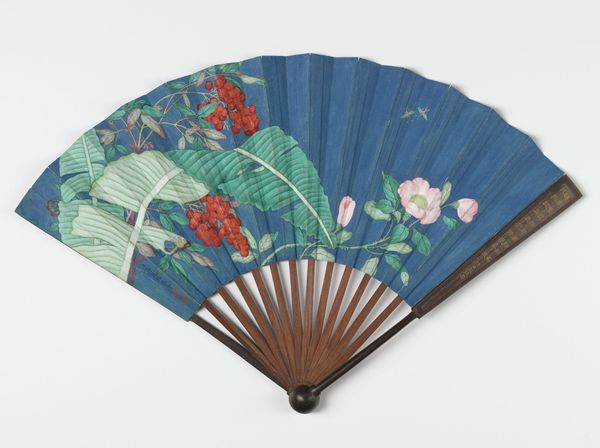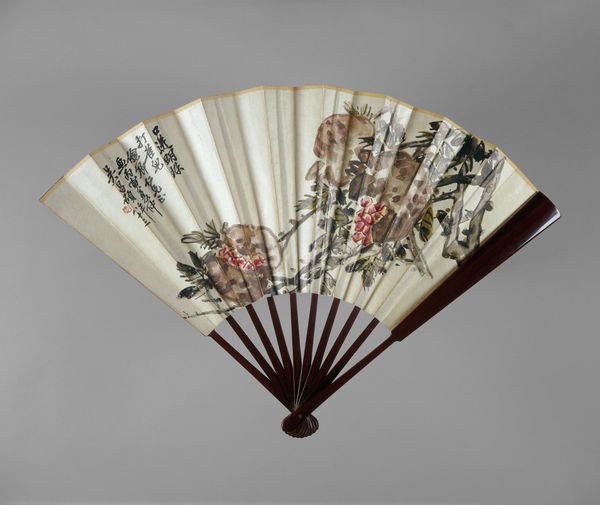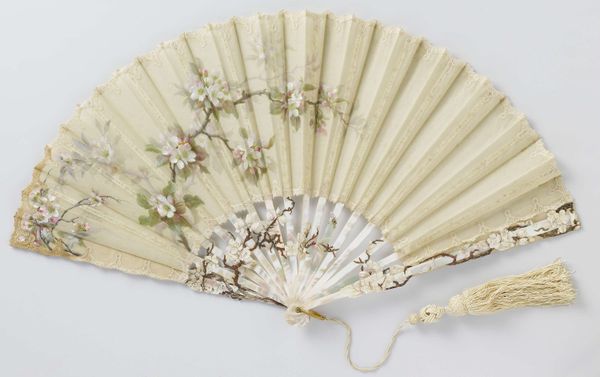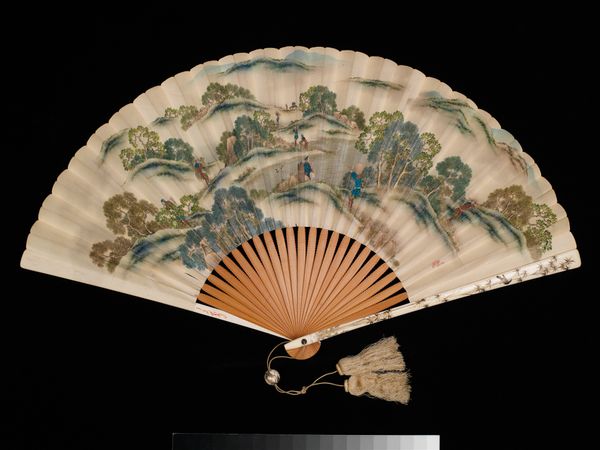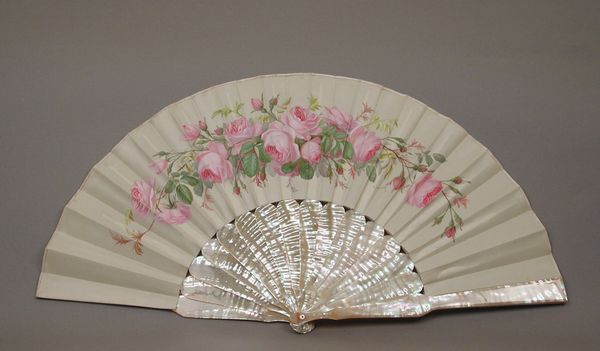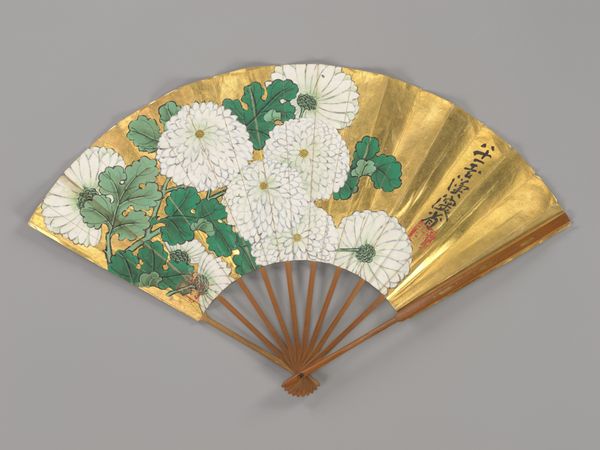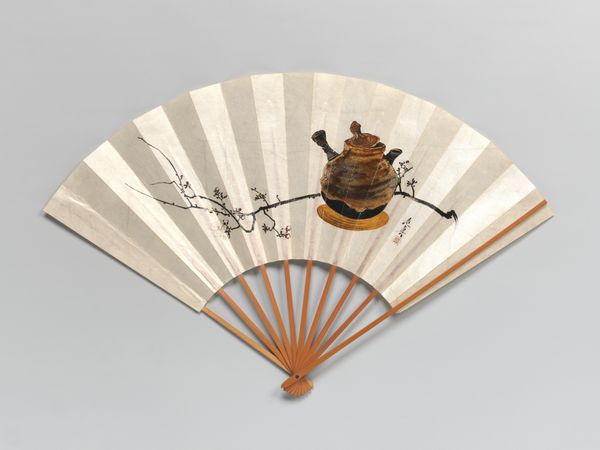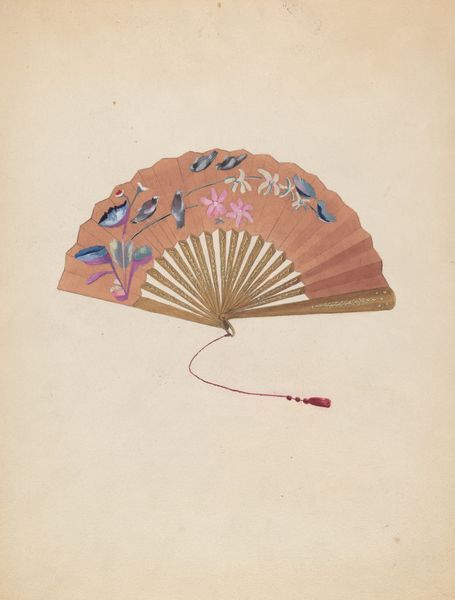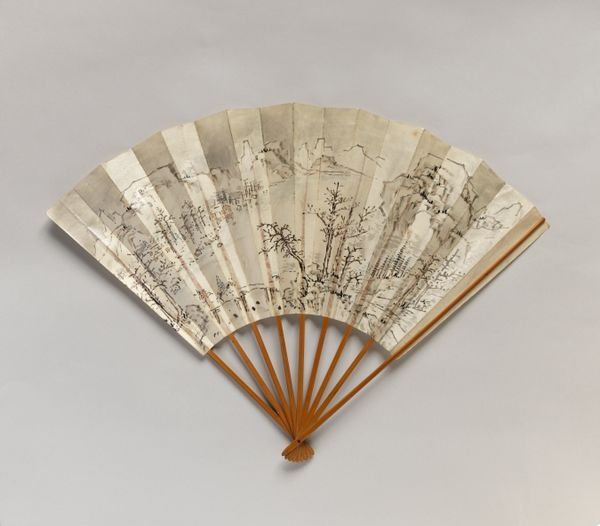
painting, watercolor
#
art-nouveau
#
painting
#
impressionism
#
flower
#
geometric pattern
#
watercolor
#
building art
#
costume
#
decorative-art
Copyright: Public Domain
Editor: Here we have a painted fan by L. Gérard, likely made between 1885 and 1895. It looks like watercolor on paper and…wood, I suppose, for the frame. It’s giving me such a delicate, almost ephemeral feeling. What do you see in this piece, thinking about it as more than just a pretty object? Curator: I see the intersection of material and social value. A fan, seemingly delicate, reveals a network of labor: the artisan crafting the frame, the paper maker, the painter meticulously applying watercolor. These materials weren’t simply ‘there’; they were produced through specific labor conditions of the time. Editor: So, the materials themselves tell a story about how things were made? Curator: Exactly. Consider the rise of industrialization; was this fan mass-produced, or individually crafted? If the former, we might consider it a reflection of consumer culture at the time. If handcrafted, it pushes us to acknowledge the skills of the maker in a culture undergoing significant change. Editor: The flowers…irises, I think. Does that connect to the social piece, somehow? Curator: Flowers became increasingly important as both ornamental motifs, reflecting a growing interest in botany among the rising middle class, and their mass production changed how people appreciated nature, divorcing it from its rural origins. What did these motifs mean to the owner, in terms of self-representation and aspiration? It would depend on her social class. Editor: That’s fascinating; so a simple object embodies broader societal shifts! I will definitely start noticing these nuances of materials, production, and labor! Curator: Indeed! Examining such objects critically lets us uncover deeper social and economic stories of the past. A beautiful thing, but definitely so much more to consider.
Comments
No comments
Be the first to comment and join the conversation on the ultimate creative platform.
